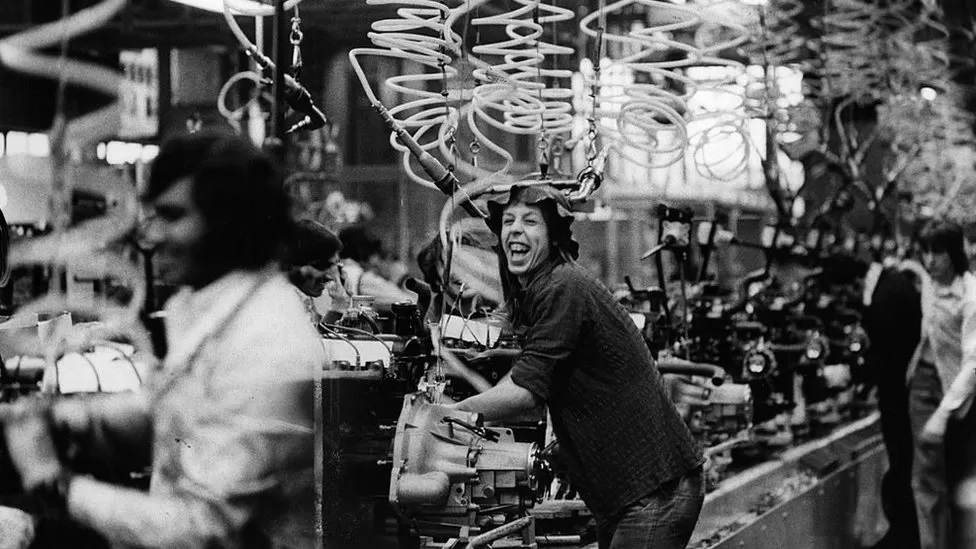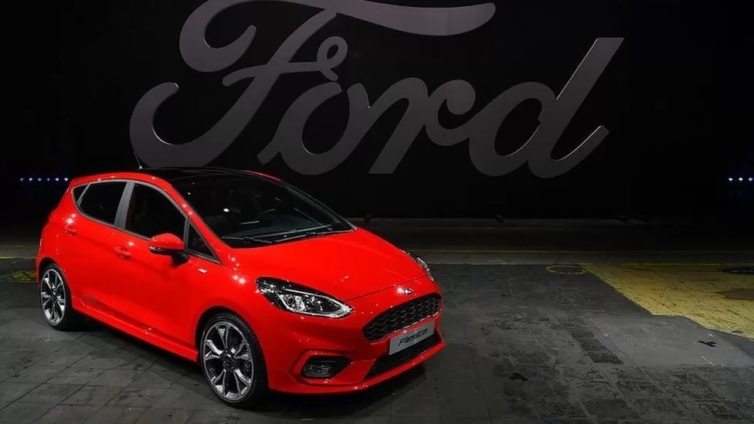
Audio By Carbonatix
The popular Ford Fiesta is set to be discontinued as early as next year as costs of parts rise and drivers opt for SUVs, the BBC understands.
Ford bosses are expected to announce in the next few days that the production of the Fiesta will end by mid-2023.
Executives are believed to be holding talks with dealers, suppliers and staff ahead of the announcement.
The Sun first reported that Ford had no plans for an electric version of the car despite its popularity.
A spokesman for Ford said that it was "accelerating our efforts to go all in on electrification", and so the company is reviewing the portfolio of cars it has on offer.
He added that the carmaker does not comment on speculation and that more information would be made available soon.
The Fiesta is currently produced in Germany, although the first model rolled off the production line in Dagenham, Essex, in 1977.
The car was at the forefront of the US carmaker's efforts to corner the British car market because of its more affordable price point.
It was created originally as a more fuel-efficient, small car in the wake of the 1973 oil crisis. More than 20 million of the cars have since been built for customers worldwide after it shot to the top of best-seller lists and remained there for decades.

In recent years, it has been displaced by newer models such as the Puma. Although last month, the Fiesta was still the sixth best-selling new car in the UK with 4,570 registrations, according to the latest data from industry body the Society of Motor Manufacturers.
Ford is thought to be using electrification as an opportunity to reinvent the brand for eco-conscious consumers.
They have already announced an electric version of the F-150 pickup, one of the best-selling vehicles in the US, and launched an electric SUV under the Mustang brand.
As the UK's 2030 ban on new petrol and diesel cars approaches, it is thought the Puma, a smaller, hybrid, SUV, will take the lead as the more affordable option as Ford puts more of its focus on design.
It has already dropped the Focus model too, without an electric version tipped for production.
The company, which is investing $50bn (£43.bn) globally through 2026 to electrify its fleet, now says it is on track to deliver more than two million electric vehicles annually by 2026.
Latest Stories
-
Ghana is rising again – Mahama declares
2 hours -
Firefighters subdue blaze at Accra’s Tudu, officials warn of busy fire season ahead
3 hours -
New Year’s Luv FM Family Party in the park ends in grand style at Rattray park
3 hours -
Mahama targets digital schools, universal healthcare, and food self-sufficiency in 2026
3 hours -
Ghana’s global image boosted by our world-acclaimed reset agenda – Mahama
3 hours -
Full text: Mahama’s New Year message to the nation
3 hours -
The foundation is laid; now we accelerate and expand in 2026 – Mahama
3 hours -
There is no NPP, CPP nor NDC Ghana, only one Ghana – Mahama
4 hours -
Eduwatch praises education financing gains but warns delays, teacher gaps could derail reforms
4 hours -
Kusaal Wikimedians take local language online in 14-day digital campaign
5 hours -
Stop interfering in each other’s roles – Bole-Bamboi MP appeals to traditional rulers for peace
5 hours -
Playback: President Mahama addressed the nation in New Year message
5 hours -
Industrial and Commercial Workers’ Union call for strong work ethics, economic participation in 2026 new year message
7 hours -
Crossover Joy: Churches in Ghana welcome 2026 with fire and faith
7 hours -
Traffic chaos on Accra–Kumasi Highway leaves hundreds stranded as diversions gridlock
7 hours

